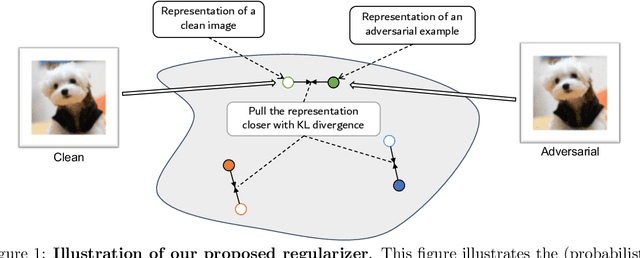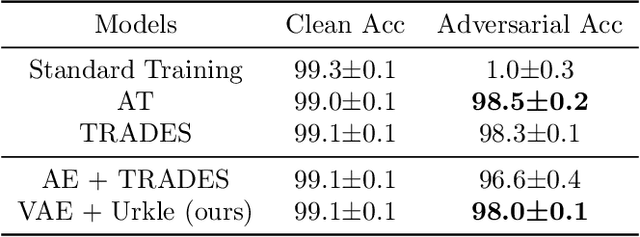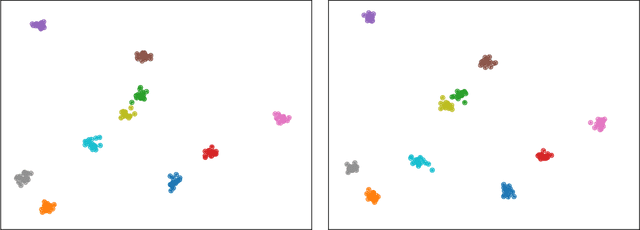Task-Agnostic Robust Representation Learning
Paper and Code
Mar 15, 2022



It has been reported that deep learning models are extremely vulnerable to small but intentionally chosen perturbations of its input. In particular, a deep network, despite its near-optimal accuracy on the clean images, often mis-classifies an image with a worst-case but humanly imperceptible perturbation (so-called adversarial examples). To tackle this problem, a great amount of research has been done to study the training procedure of a network to improve its robustness. However, most of the research so far has focused on the case of supervised learning. With the increasing popularity of self-supervised learning methods, it is also important to study and improve the robustness of their resulting representation on the downstream tasks. In this paper, we study the problem of robust representation learning with unlabeled data in a task-agnostic manner. Specifically, we first derive an upper bound on the adversarial loss of a prediction model (which is based on the learned representation) on any downstream task, using its loss on the clean data and a robustness regularizer. Moreover, the regularizer is task-independent, thus we propose to minimize it directly during the representation learning phase to make the downstream prediction model more robust. Extensive experiments show that our method achieves preferable adversarial performance compared to relevant baselines.
 Add to Chrome
Add to Chrome Add to Firefox
Add to Firefox Add to Edge
Add to Edge